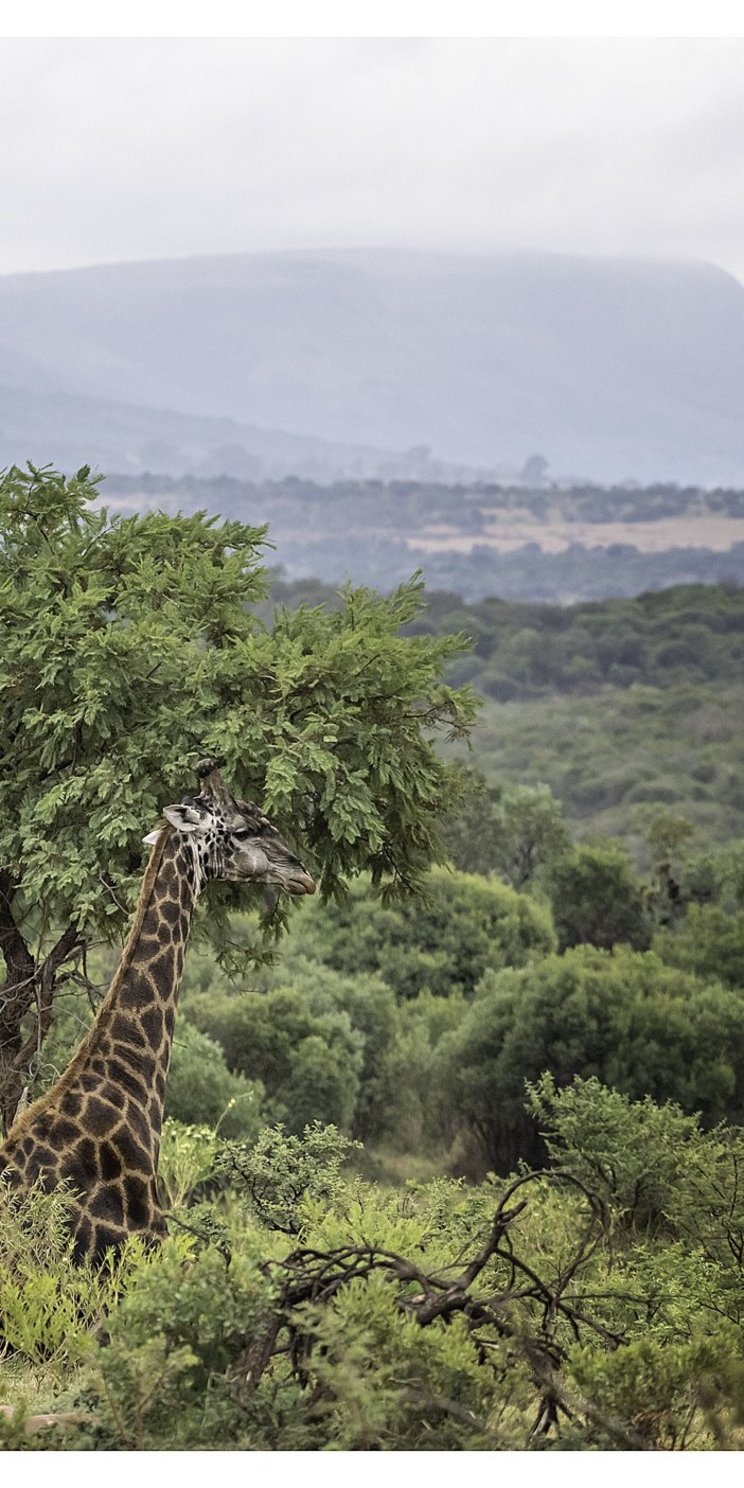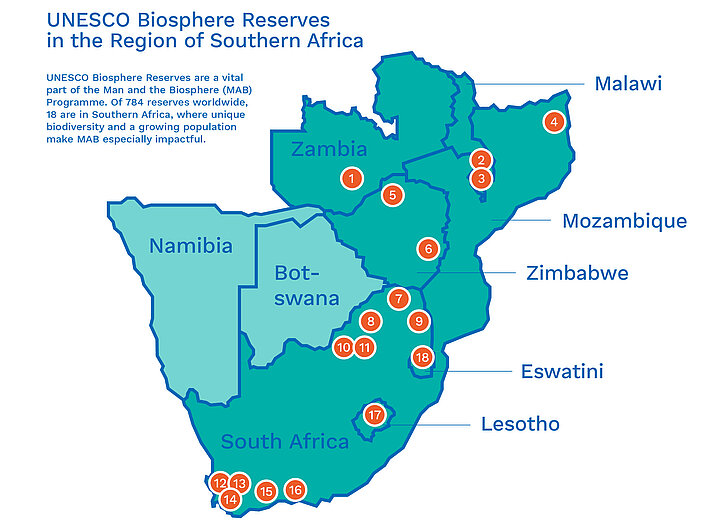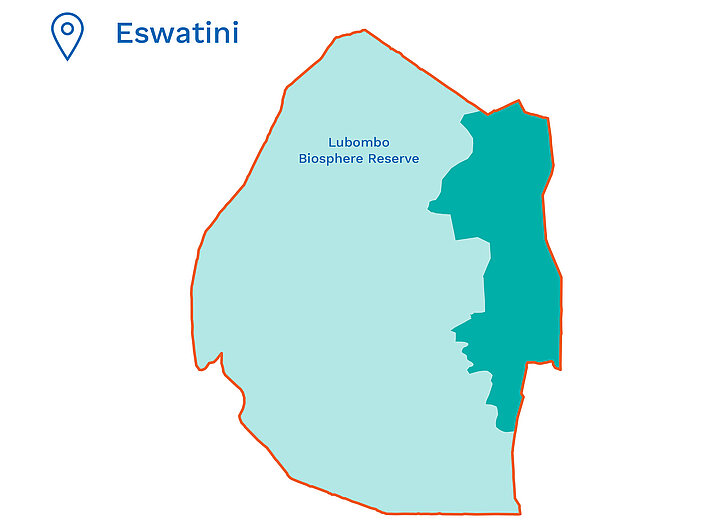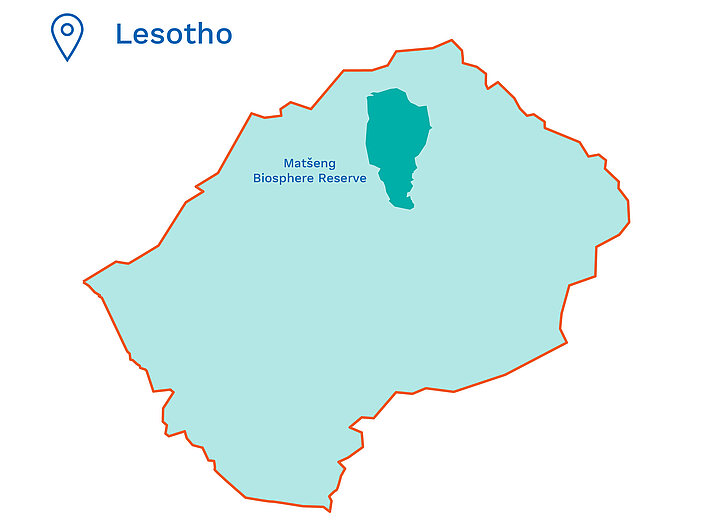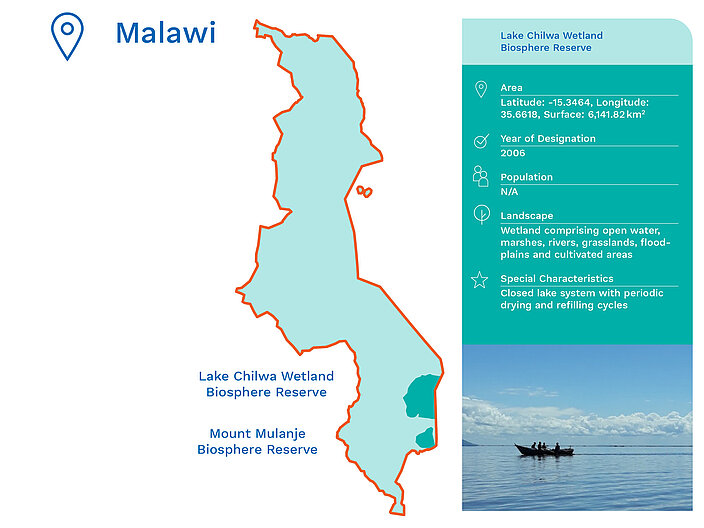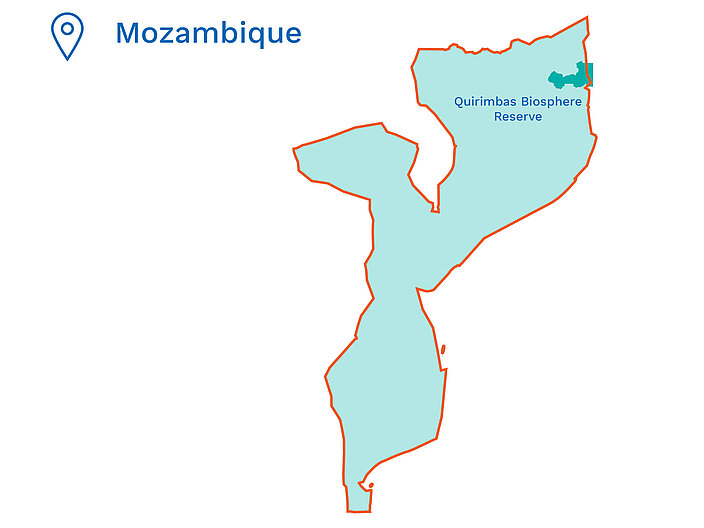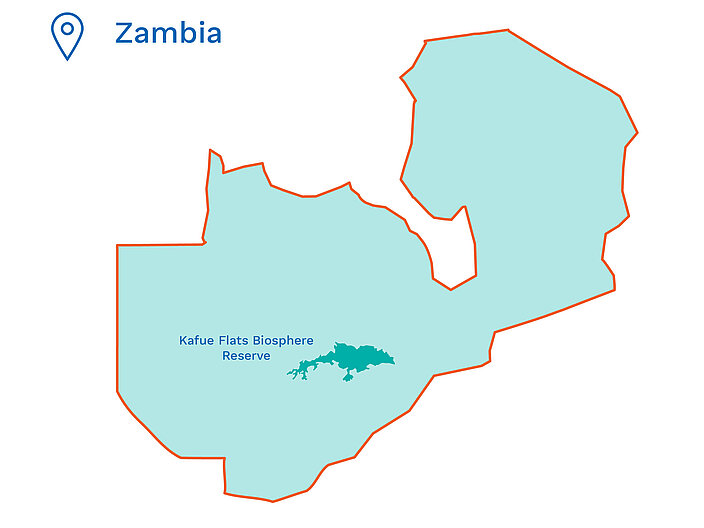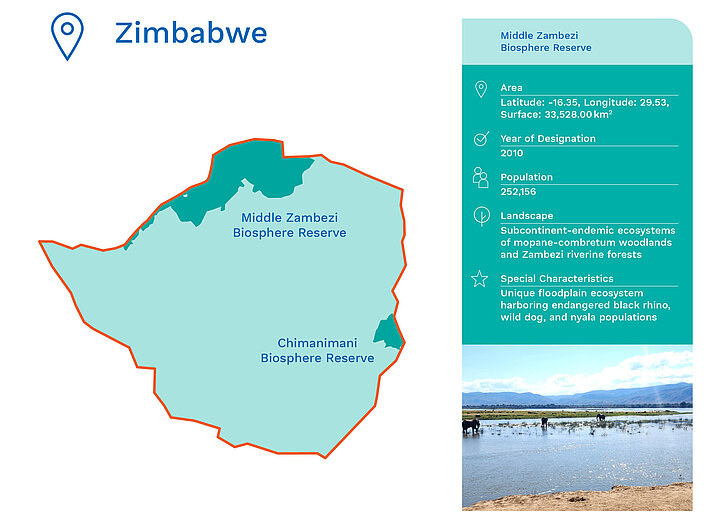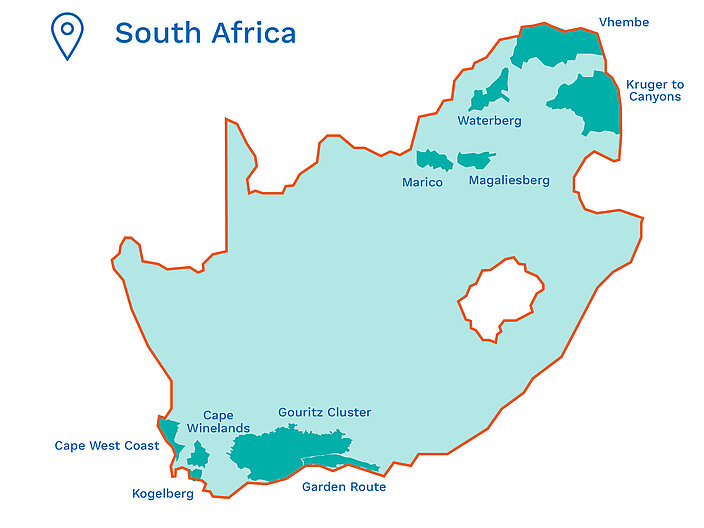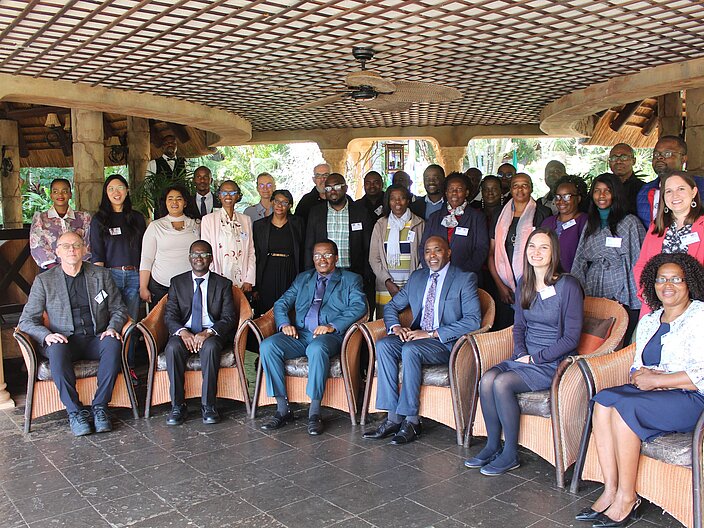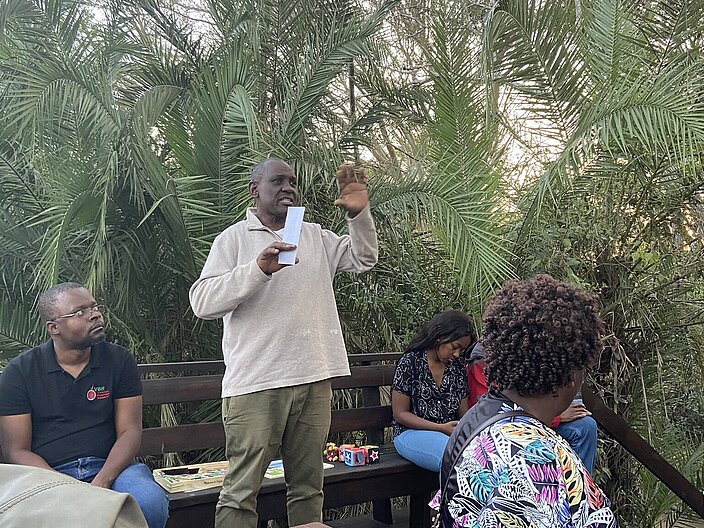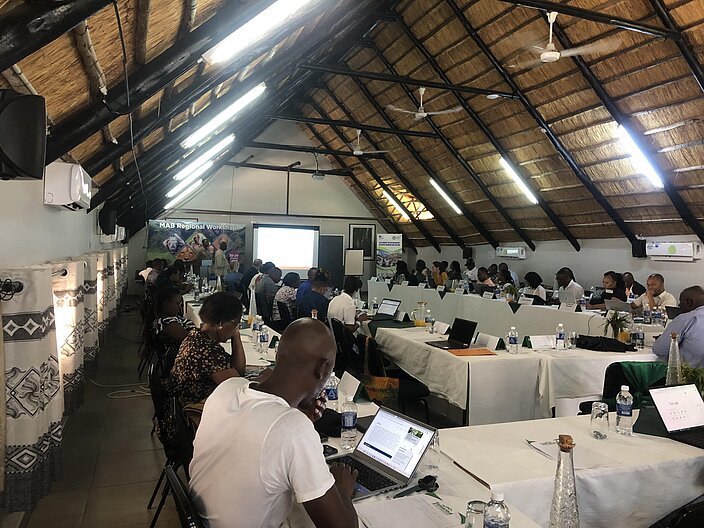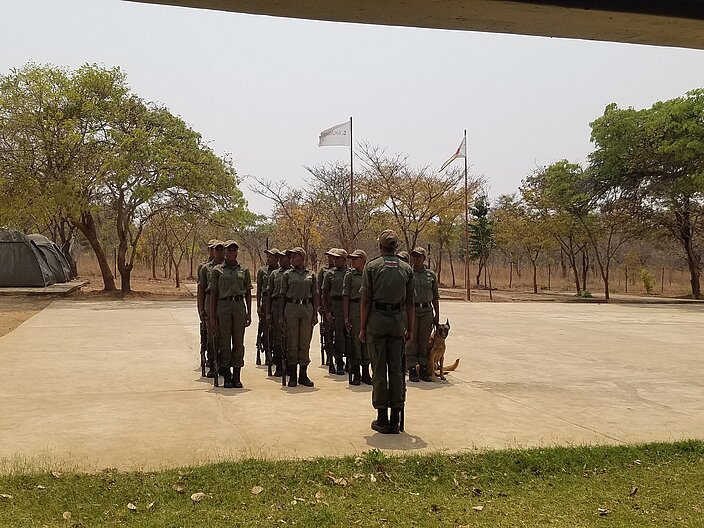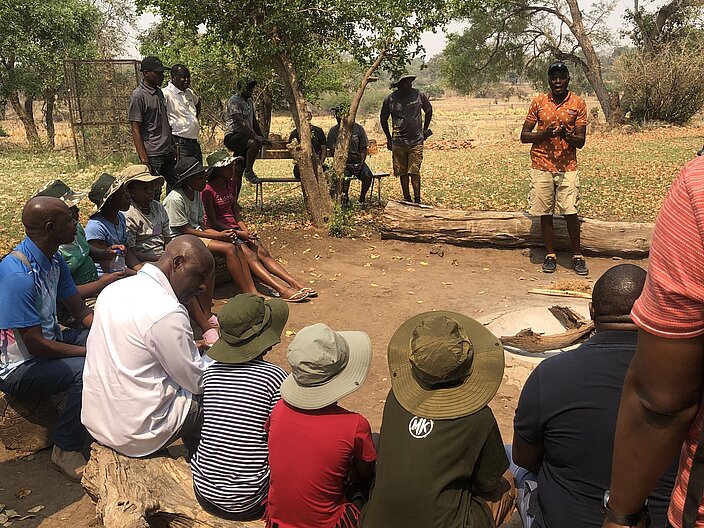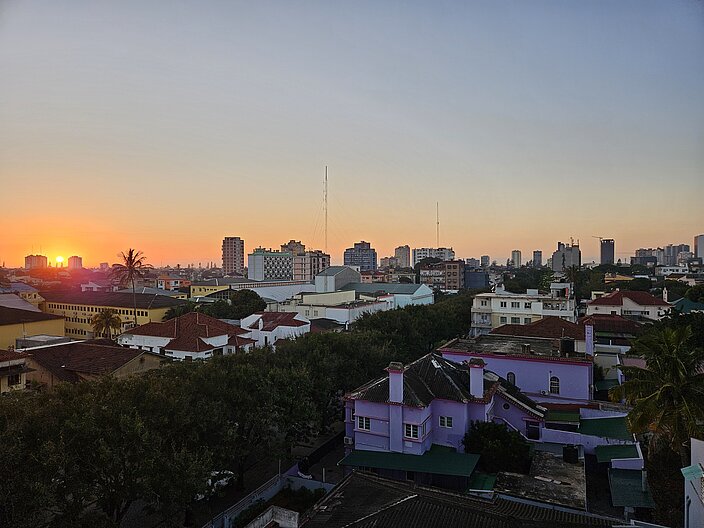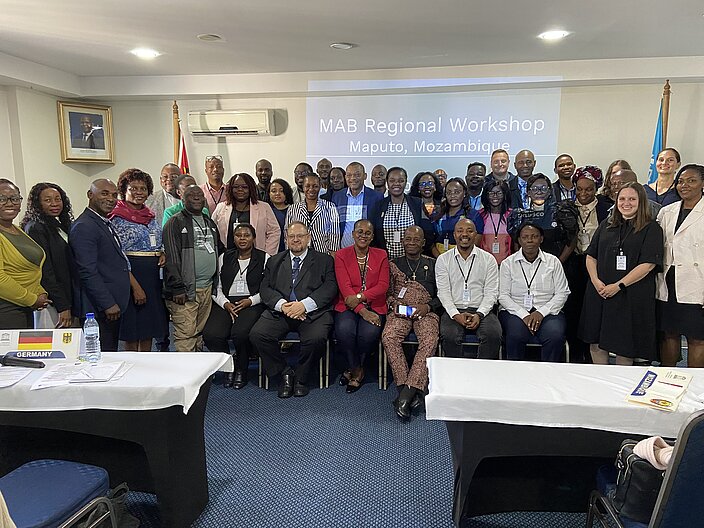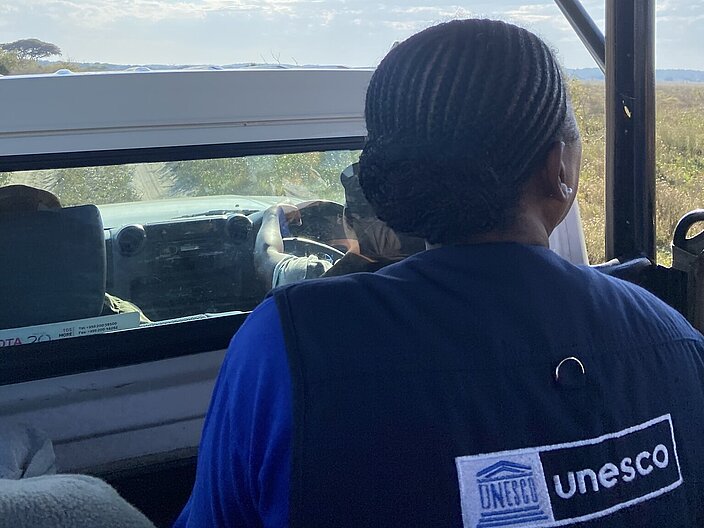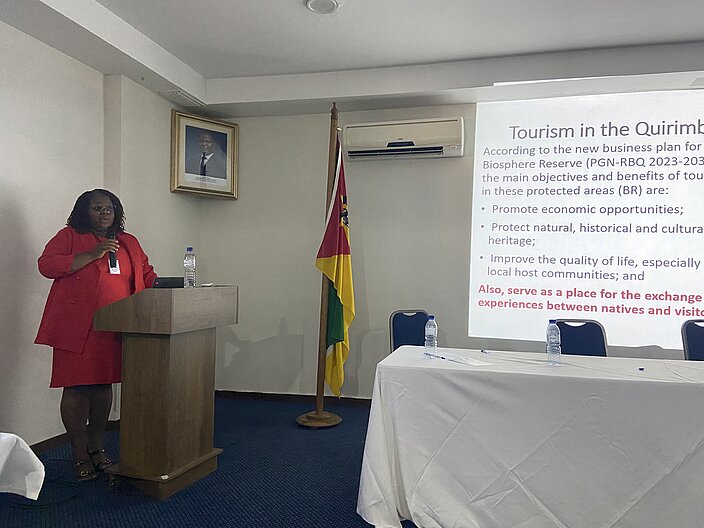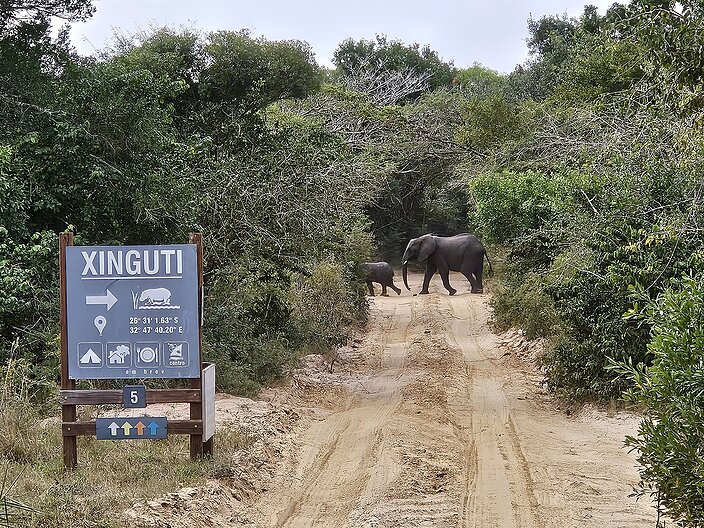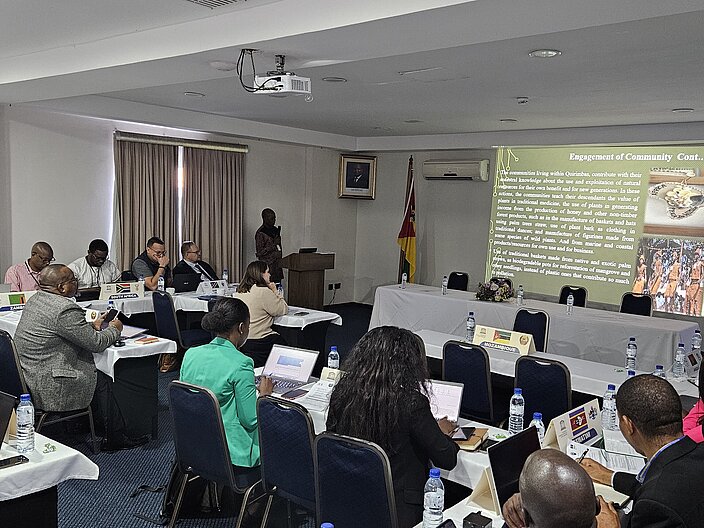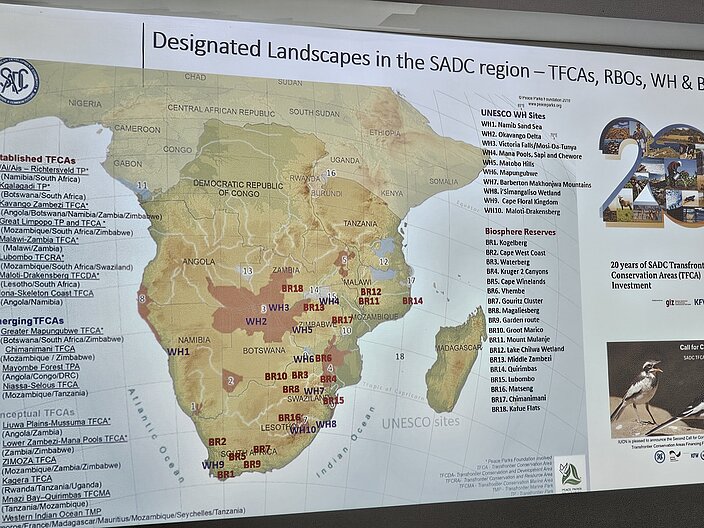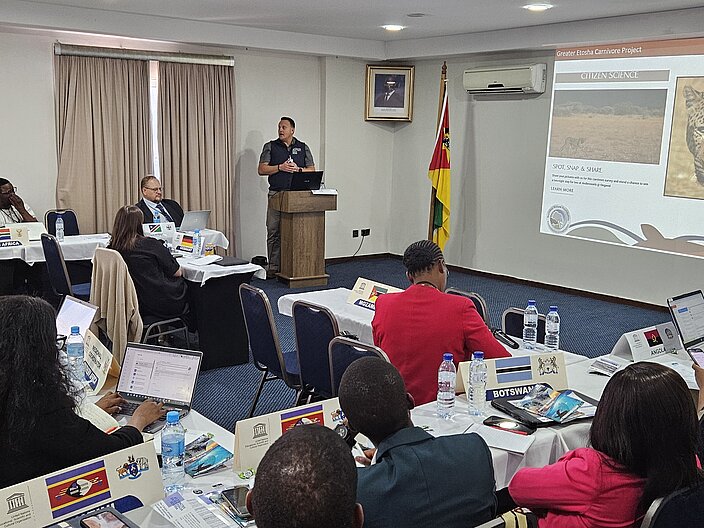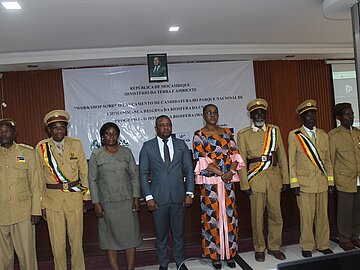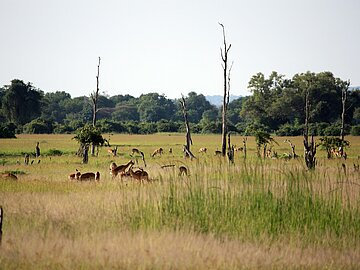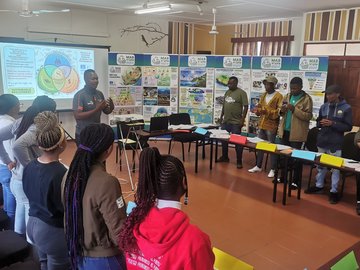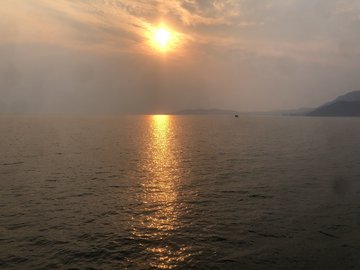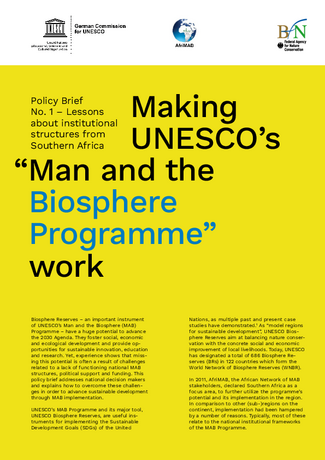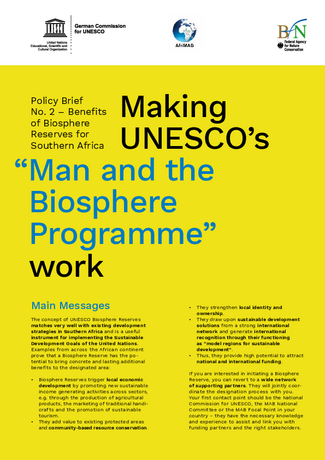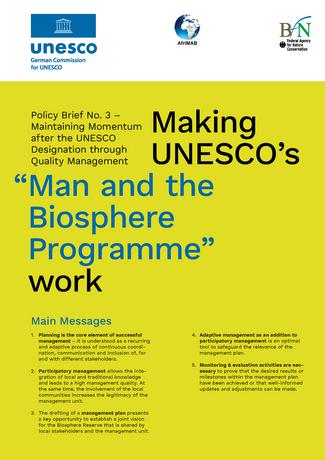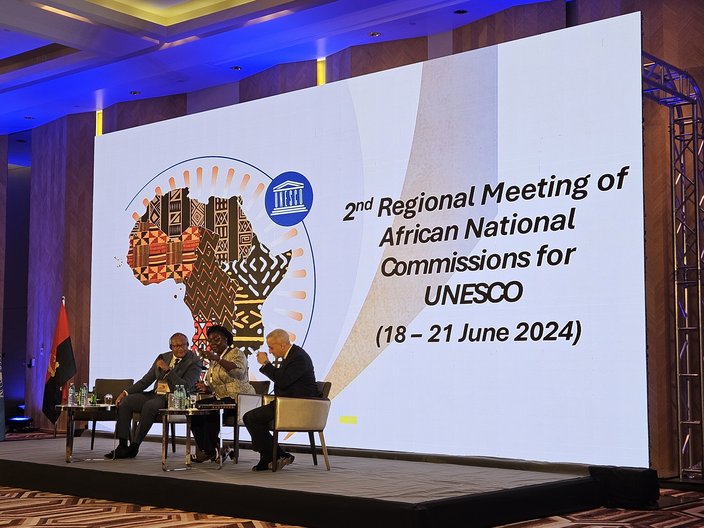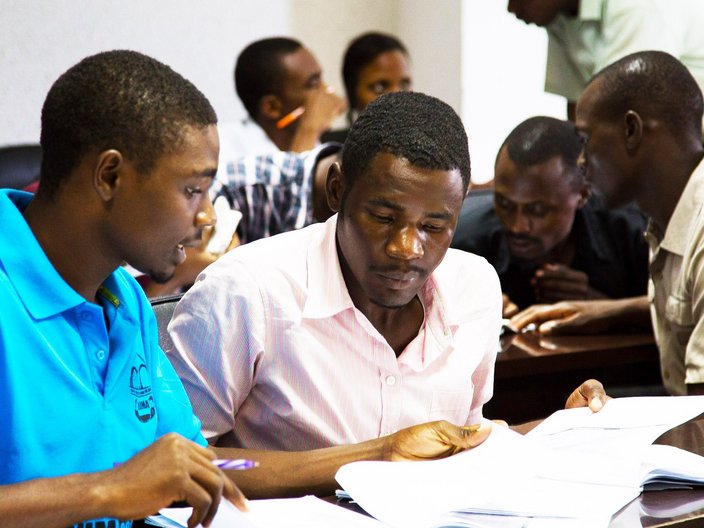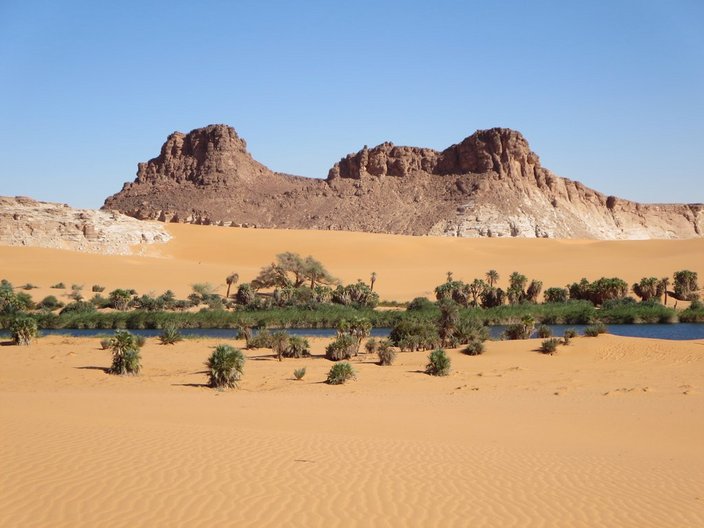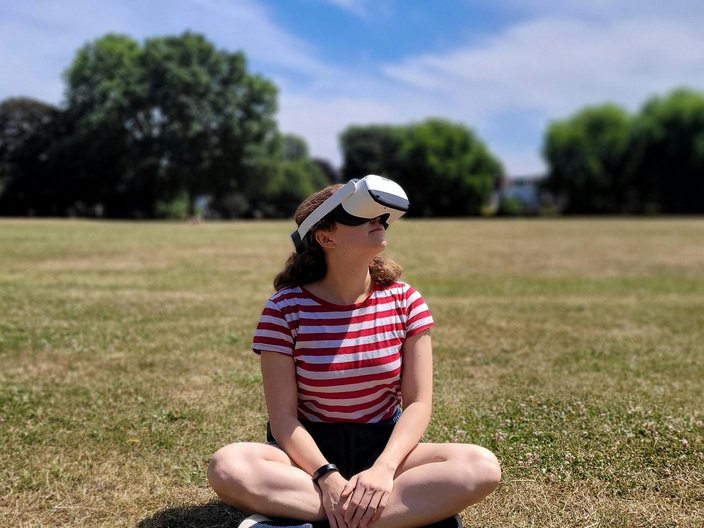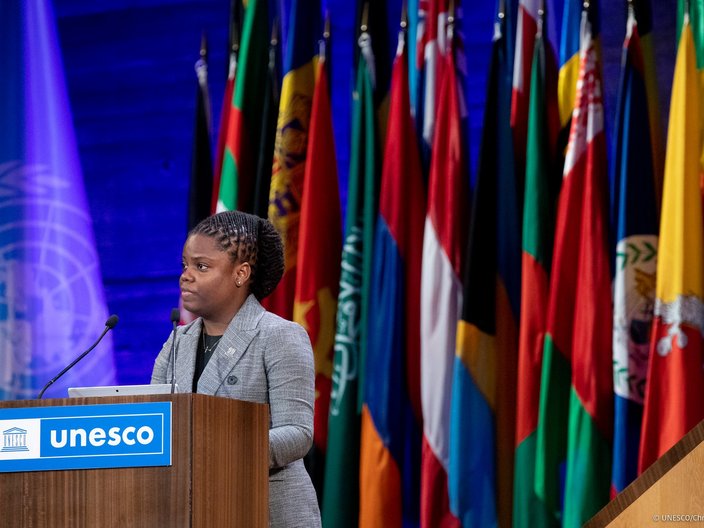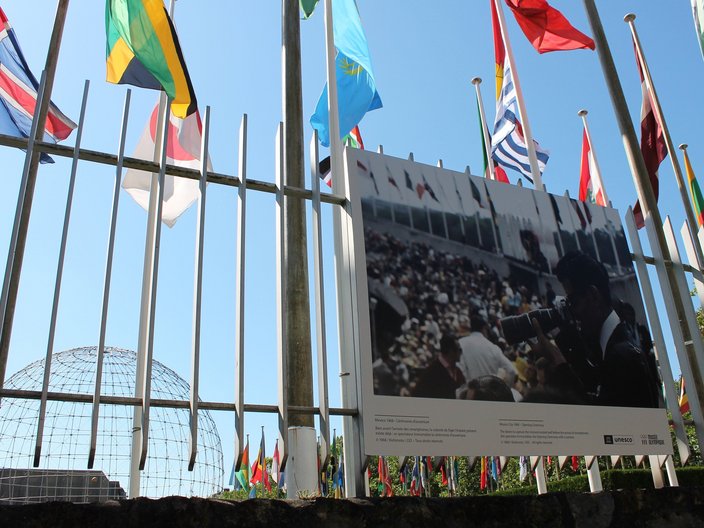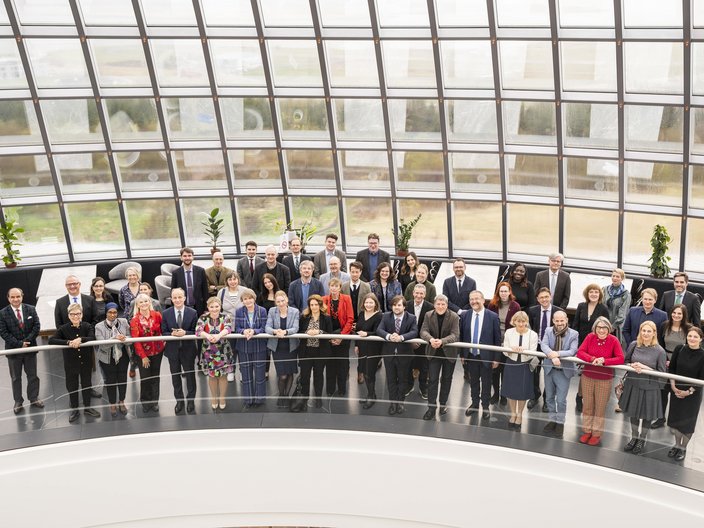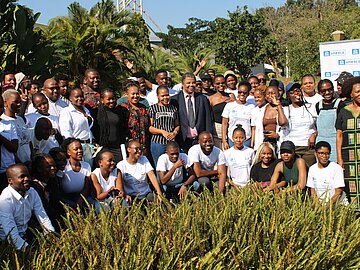
Biosphere reserves are so-called 'model regions for sustainable development'. They promote solutions that reconcile the protection of nature with its sustainable use by humans. The goal is to conserve biodiversity while enabling local people to sustainably use nature which allows for socio-economic development. The biosphere reserve model is designed to be flexible so that it can be applied to very different geographical areas and different environmental, social and economic contexts.
In the Southern African region, with its diverse landscapes, rich biodiversity and urgent need for sustainable development, biosphere reserves offer potential for nature and local people. However, there are comparatively few UNESCO Biosphere Reserves in Southern Africa.
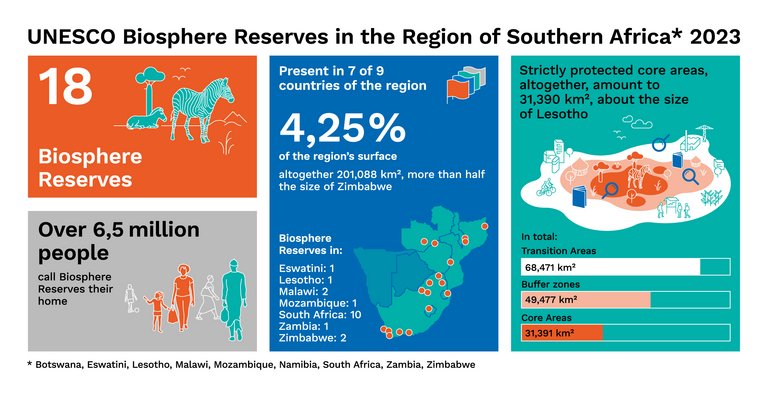
Biosphärenreservate im südlichen Afrika (Kopie 1)
Cooperation to establish new and strengthen existing biosphere reserves
The German Commission for UNESCO has been working with the National Commissions of Botswana, Eswatini, Lesotho, Malawi, Mozambique, Namibia, South Africa, Zambia and Zimbabwe since 2017 to nominate new biosphere reserves in Southern Africa and to further develop existing biosphere reserves.
As part of the programme 'Model Regions for Sustainable Development: Supporting UNESCO Biosphere Reserves in Southern Africa', the German Commission for UNESCO is supporting National Commissions in the region to implement projects which strengthen the biosphere reserves on-site.
The projects aim to
• prepare the nomination of new UNESCO Biosphere Reserves,
• establish sustainable management structures in biosphere reserves and implement further measures to safeguard and improve the quality of already designated biosphere reserves, and
• improve the local anchoring of biosphere reserves, with particular emphasis on involving local communities.
Each year, three to four projects can be implemented in the biosphere reserves of the region.
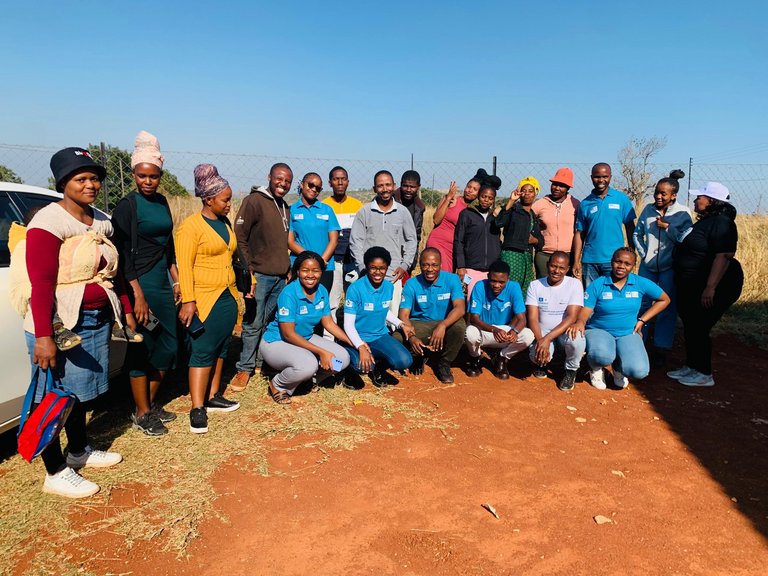
In addition, the German Commission for UNESCO promotes knowledge exchange and networking among relevant stakeholders in the region. For this purpose, it organises on-site expert workshops and digital practical workshops, and develops support and practical teaching and information materials for people working for, with or in biosphere reserves in Southern Africa.
Regional workshops, which take place every one to two years in one of the partner countries, play an important role in building the network. These workshops are organised by the German Commission for UNESCO in collaboration with the host country's respective UNESCO National Commission. The workshops bring together experts from all partner countries. These experts include representatives of the UNESCO National Commissions, relevant ministries, biosphere reserve administrations and scientists. Participants exchange views on current and future developments, as well as relevant topics of the MAB programme in the region. Previous workshops have taken place in Lesotho (2018), Mozambique (2019), Eswatini (2022), Zimbabwe (2023) and Mozambique (2025). Participants presented their experiences and expertise on topics such as sustainable tourism, climate change, local community involvement, strategic partnerships, and citizen science in biosphere reserves. They also showcased projects that have been implemented in the field.
The programme is funded by the Federal Agency for Nature Conservation (BfN) with support from the Federal Ministry for the Environment, Nature Conservation, Nuclear Safety and Consumer Protection (BMUV).
With this project, the German Commission for UNESCO helps to strengthen the global network of biosphere reserves as a place of global exchange and to promote international cooperation between UNESCO National Commissions.
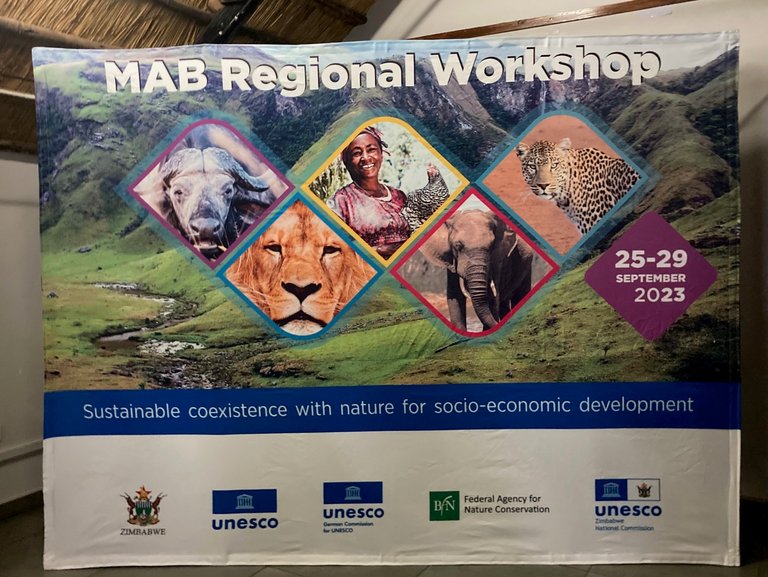
MAB Programme
UNESCO's Man and the Biosphere (MAB) Programme, which forms the basis for biosphere reserves and their recognition, was established in 1970. It was the first global programme to address the relationship between man and the environment in a comprehensive way, using multidisciplinary research approaches. The first biosphere reserve was designated by UNESCO in 1978.
Impressions of the 2022-2025 workshops
Projects 2022
| Eswatini | Examination of Management Structures in the Lubombo Biosphere ReserveIn order to optimise the management structures in the Lubombo Biosphere Reserve, designated in 2019, and in preparation for the regular evaluation of the biosphere reserve by UNESCO, a South African expert reviewed the current management structures of the biosphere reserve. He analysed existing policies and management plans, consulted with local stakeholders and government institutions, and made recommendations for further action. As a result, the quality of the biosphere reserve's management was further improved, such as the inclusion of a clear definition of responsibilities and roles in the biosphere reserve. |
| Malawi | Harmonisation of Management Plans in the Lake Chilwa Biosphere ReserveIn order to further improve the management of the UNESCO Biosphere Reserve Lake Chilwa, the various existing management plans for the area were analysed and workshops were held with the main stakeholders of the biosphere reserve. The aim was to bring the different management plans together and to optimise the existing management structures. The project was successfully completed with the creation of a comprehensive management plan for the entire area. |
| Mozambique | Setting up Environmental Clubs in the Quirimbas Biosphere ReserveThe administration of the UNESCO Biosphere Reserve Quirimbas has set up environmental clubs in six primary schools in the region. To raise awareness of nature conservation and environmental protection, training courses for teachers were organised, lessons for students in the environmental clubs were developed, and teaching materials were prodced. The focus was on sustainability issues and teaching practical measures and behaviours to support environmental protection. |
| Lesotho | Strengthening the Involvement of Key Stakeholders in the Matseng Biosphere ReserveThe Lesotho National Commission for UNESCO organised meetings with local and national government institutions and local community representatives to involve key national and local stakeholders in the work of the Matseng Biosphere Reserve. The project team informed key stakeholders about the biosphere reserve and the MAB programme. It also explored their expectations of the biosphere reserve. The aim of the project was to build long-term support for the biosphere reserve and the associated sustainable development of the area. |
Projects 2021
| Eswatini | Needs Assessment of Local Communities in the Lubombo Biosphere ReserveStudents from the University of Eswatini conducted surveys of the local population in the UNESCO Biosphere Reserve Lubombo, which was established in 2019, to determine their needs and expectations. In the next steps, the data was analysed by the Eswatini Department of Statistics. Then small-scale, needs-based projects were developed and implemented with local representatives to help the local communities. These projects included training young people in sustainable tourism and setting up a market to sell local products. |
| Lesotho | Establishing Management Structures in the Matseng Biosphere ReserveIn order to establish effective management structures in the UNESCO Biosphere Reserve Matseng, which was designated in 2021, the Lesotho MAB Committee organised meetings with key local stakeholders to jointly develop concepts and a management plan. The project team also trained selected youth from the biosphere reserve to become ambassadors for the biosphere reserve. Their role is to inform the local community about the biosphere reserve and to bring the community's needs to the attention of the MAB Committee. |
| Zambia | Supporting the Nomination Process of the UNESCO Biosphere Reserve Kafue FlatsThe MAB Committee in Zambia organised meetings and workshops with key stakeholders in the proposed Kafue Flats Biosphere Reserve to inform and actively involve the local communities in the nomination process. Members of the Zambian MAB Committee also provided additional information to the local community through features on several local radio stations. The project led to the successful nomination of the area as a UNESCO Biosphere Reserve. |
Learn more
More about the projects in EnglishExternal link:
More about biosphere reserves worldwide
